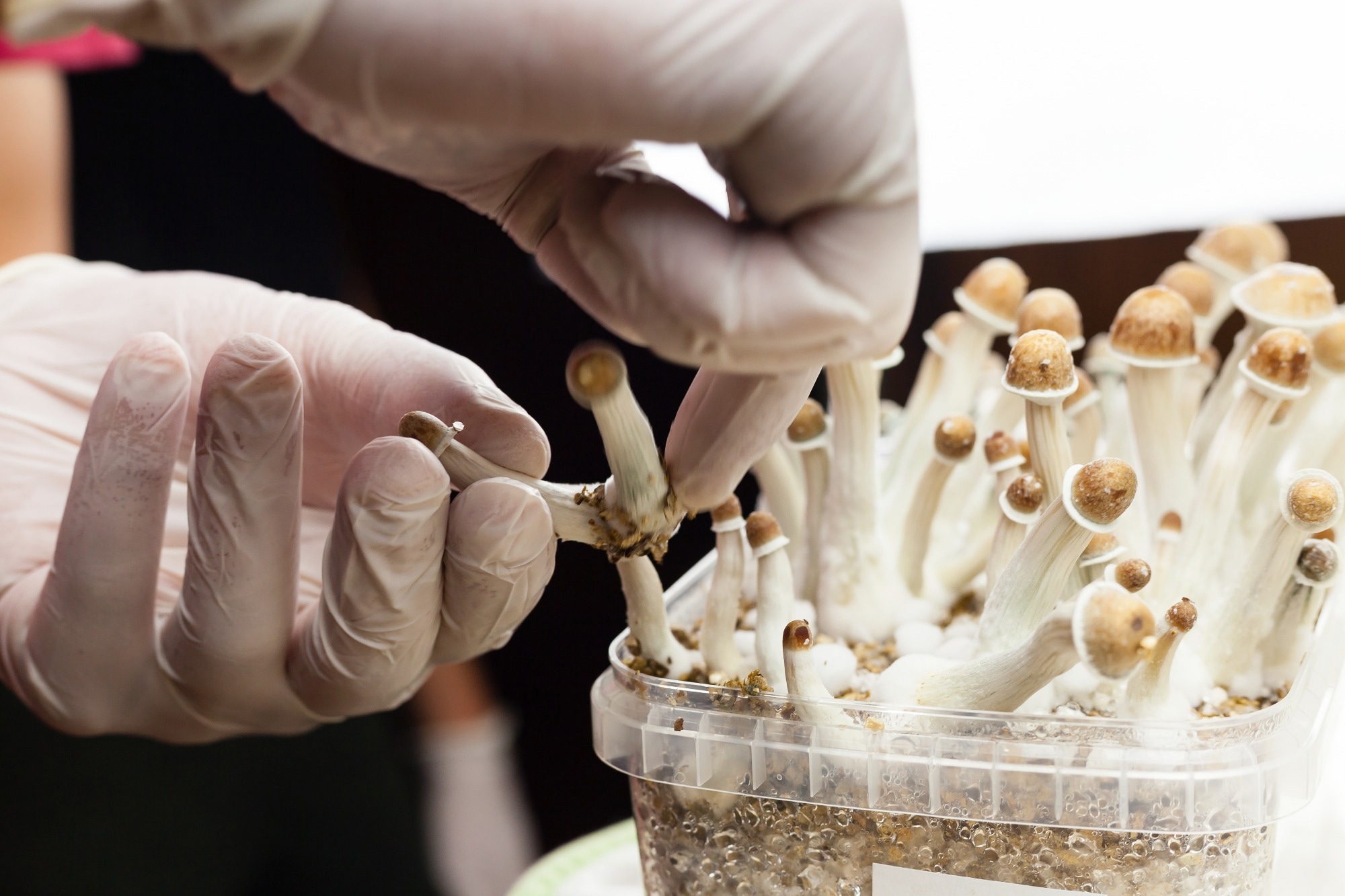The article highlights the importance of understanding these mechanisms to minimize risks and optimize the therapeutic potential of psychedelics.
 Perspective: An Integrated theory of false insights and beliefs under psychedelics. Image Credit: Moha El-Jaw / Shutterstock
Perspective: An Integrated theory of false insights and beliefs under psychedelics. Image Credit: Moha El-Jaw / Shutterstock
Background
Insight moments, or "Aha!" moments, are powerful experiences of profound understanding that can lead to significant belief changes. These moments are key features of psychedelic experiences and have the potential to restructure maladaptive beliefs in mental illness.
However, ensuring the accuracy and benefit of these insights is essential. The researchers proposed the False Insights and Beliefs Under Psychedelics (FIBUS) model to address how psychedelics can lead to false or maladaptive insights.
Insights moments and the Eureka Heuristic
Insights are sudden realizations that often accompany problem-solving, bringing satisfaction and confidence. While insights can be correct, they can also be false, influenced by prior information or misleading contexts.
The Eureka Heuristic suggests that feelings of insight guide decision-making but can sometimes be flawed. False insights, like memory distortions, can lead to entrenched false beliefs, especially when positive emotions reinforce them. This highlights the need to understand and mitigate the effects of these states to effectively leverage psychedelics' therapeutic potential.
Active inference and precision
Active inference theory describes the brain as constantly making predictions to understand the world and updating beliefs based on sensory data to minimize errors. Precision, or confidence in these predictions, guides how the brain updates its beliefs.
Insights help quickly update beliefs without new information, a process known as fact-free learning. Dopamine plays a role in enhancing confidence and pleasure in these insights. This process, influenced by predictive processing, involves both conscious and subconscious thought processes, helping to understand how insights shape beliefs.
Psychedelics and belief changes
Researchers have been exploring how psychedelics can change beliefs. The Relaxed Beliefs Under Psychedelics (REBUS) theory suggests that psychedelics help update beliefs by reducing confidence in them.
Psychedelics primarily act on the brain's serotonin receptors in areas associated with the pre-frontal cortex, responsible for high-level thinking, and the visual cortex, responsible for sensory processing.
When these substances bind to these receptors, they increase neuron activity, altering brain communication patterns. This increased activity leads to the significant effects on perception, emotion, and cognition often reported during psychedelic experiences.
Psychedelics also impact additional neurotransmitter systems, like glutamate and dopamine, further modifying brain activity.
Studies using brain imaging have shown psychedelics can reduce connectivity within the default mode network (DMN), which is a group of brain regions related to inner dialogue and self-referential thinking.
This disruption is believed to contribute to the sense of unity and 'ego dissolution' reported by users. At the same time, psychedelics can enhance connectivity between various brain networks, which may facilitate new associations and insights.
The REBUS theory
The REBUS theory proposes a process for how psychedelics change beliefs.
First, they reduce confidence in high-level beliefs that usually constrain our perceptions. This is because targeted receptors are densely located in brain regions towards the top of the hierarchy, like parts of the DMN.
Then, with reduced constraints from high-level beliefs, the brain gives more weight to new sensory data, allowing for novel input to influence higher-level beliefs more easily. This can lead to a re-evaluation of long-held beliefs, sometimes resulting in complex assumptions collapsing, such as one's sense of social identity or self.
Effects of psychedelics on memories
Another way psychedelics might change beliefs involves their effects on memory systems. This pathway does not rely on the REBUS assumptions but highlights how psychedelics influence different types of memories.
Psychedelics can impair the formation of detailed, context-specific memories (hippocampal-dependent) while enhancing the formation of general, familiarity-based memories (cortically dependent).
This means that under the influence of psychedelics, people might feel strong familiarity and insight without the context to accurately understand these feelings. For example, they might have a feeling of knowing or recognition without recalling specific details, leading to phenomena like déjà vu.
Combining these theories, researchers propose that while psychedelics can lead to meaningful belief changes and insights, they also carry the risk of false beliefs. Ensuring these insights are grounded in reality, especially in therapeutic settings, is crucial to avoid the potential negative consequences of false beliefs.
Conclusions
The FIBUS model suggests that psychedelics can increase the perceived truthfulness and number of insights due to dopamine release, potentially leading to more false insights. Clinically, it is crucial to differentiate between true and adaptive beliefs, as some insights from psychedelics may not be easily tested or falsifiable.
This complexity requires careful clinical judgment to determine if new beliefs improve or worsen a patient's condition. The paper calls for more research on integrating psychedelic insights into therapy and emphasizes the need for methods to ensure the validity and usefulness of these insights.
Journal reference:
- An integrated theory of false insights and beliefs under psychedelics. McGovern, H.T., Grimmer, H.J., Doss, M.K., Hutchinson, B.T., Timmermann, C., Lyon, A., Corlett, P.R., Laukkonen, R.E. Communications Psychology (2024). DOI: 10.1038/s44271-024-00120-6, https://www.nature.com/articles/s44271-024-00120-6